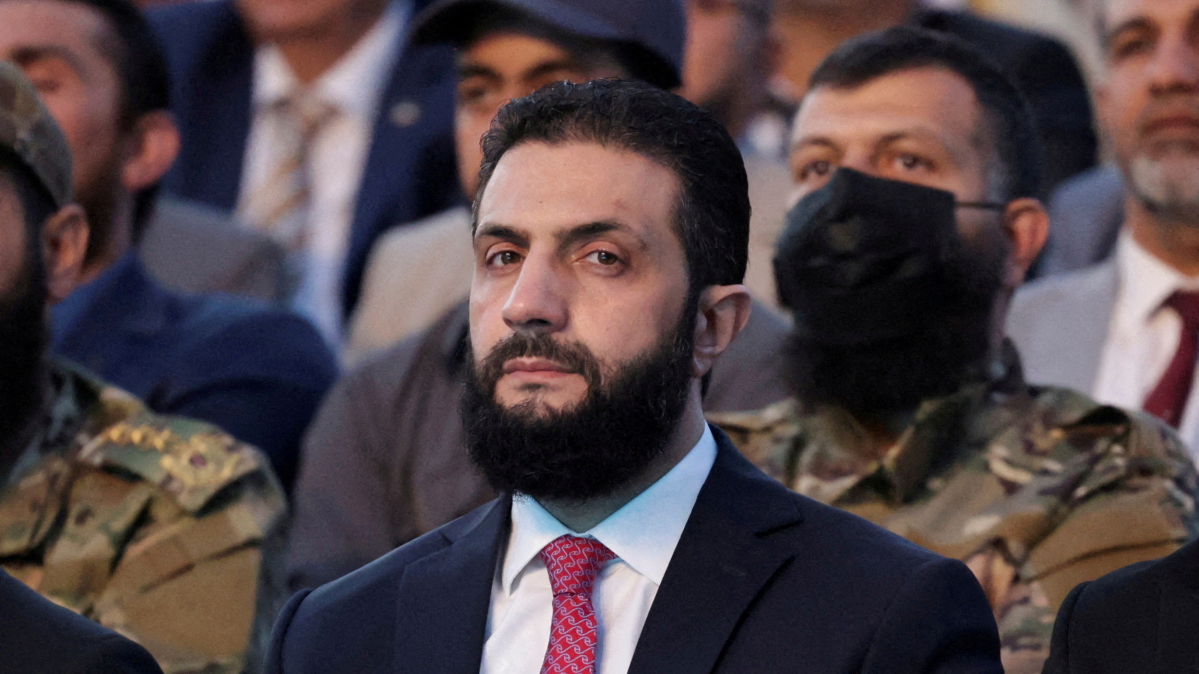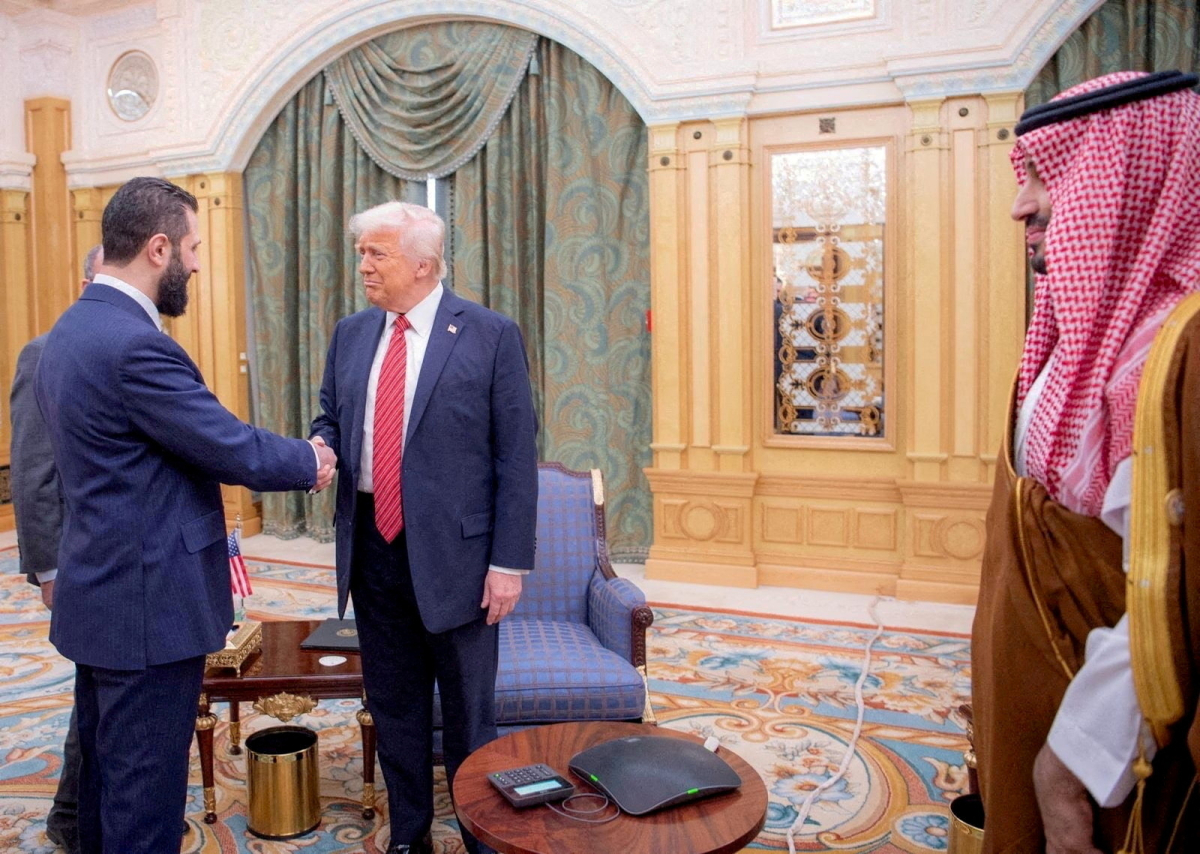Eight killed after Chinese tour bus plunges into frozen Lake Baikal
Divers have recovered the bodies of seven Chinese tourists and a Russian driver after their minibus broke through the ice of Lake Baikal in Russia, au...

Syrian President Ahmed al-Sharaa's White House meeting with U.S. President Donald Trump on Monday (10 November) caps a stunning year for the rebel-turned-ruler who toppled a long-time autocratic leader and has since toured the world as he seeks to end Syria's international isolation.
Trump is set to welcome Sharaa in the first-ever visit by a Syrian president to the White House, six months after the pair first met in Saudi Arabia and just days after Washington said the former al Qaeda member was no longer a "Specially Designated Global Terrorist."
Sharaa, 42, took power last year after his Islamist fighters launched a lightning offensive from their enclave in Syria's northwest and overthrew longtime Syrian PresidentBashar al-Assad just days later on 8 December.
Syria's regional realignment has since moved at a dizzying pace, away from Assad's key allies Iran and Russia and toward Turkey, the Gulf - and Washington.
Security is likely to be a top focus of the meeting on Monday.
The U.S. is brokering talks between Syria and Israel on a possible security pact, and Reuters reported that the U.S. is planning to establish a military presence at a Damascus airbase.
Syria is also set to join a U.S.-led coalition to fight Islamic State, which could be formally announced at Monday's White House meeting.
Last sanctions hurdle
Days before the meeting, Trump told reporters at the White House that "a lot of progress has been made" on Syria.
"I think he's (al-Sharaa's) doing a very good job. It's a tough neighbourhood, and he's a tough guy, but I got along with him very well," Trump said.

After al-Sharaa and Trump met in Riyadh in May, Trump announced he would lift all sanctions on Syria.
But the toughest measures, known as the Caesar Sanctions Act, require a repeal from Congress. The White House and State Department have publicly backed lifting them before 2025 ends, but experts say the government shutdown may affect that time frame.
Sharaa is expected to strongly advocate for a repeal, which will help spur global investment in a country ravaged by 14 years of war and which the World Bank estimates will take more than $200 billion to rebuild.
Syria's social fabric has been more recently tested. New bouts of sectarian violence left more than 2,500 dead since Assad's fall, deepening civil war wounds and putting into question the new rulers' ability to govern for all Syrians.
Dramatic shifts
Al-Sharaa's own turnaround is no less impressive than his country's. He joined al Qaeda in Iraq around the time of the 2003 U.S.-led invasion and spent years in U.S. prison there, before returning to Syria to join the insurgency against Assad.
In 2013, the U.S. designated al-Sharaa, then known as Abu Mohammad al-Golani, as a terrorist for his ties to al Qaeda. He broke ties with the group in 2016 and consolidated his influence in Syria's northwest.
The U.S. removed a $10 million bounty on al-Sharaa's head in December, and just last week, the United Nations Security Council lifted terror-related sanctions designations on him and his Interior Minister Anas Khattab.
Following the U.N. move, Britain and the U.S. lifted sanctions on the pair. In Washington, that included removing "Specially Designated Global Terrorist" designations on them.
"Al-Sharaa's visit to Washington is emblematic of the dramatic shift underway, where Syria went from being an Iranian satrapy to joining the American-led camp, and al-Sharaa himself transformed from a wanted terrorist to a partner in the war on terror," said Firas Maksad, managing director for Middle East and North Africa at the New York-based Eurasia Group.
"Much can still go wrong in this nascent experiment, and there remain grave concerns about minority and individual rights," Maksad said, "but the first ever visit by a Syrian president to Washington is a moment of hope that Syria is on the right track."
Quentin Griffiths, co-founder of online fashion retailer ASOS, has died in Pattaya, Thailand, after falling from the 17th floor of a condominium on 9 February, Thai police confirmed.
Ukraine’s National Paralympic Committee has announced it will boycott the opening ceremony of the Milano Cortina 2026 Paralympics in Verona on 6 March, citing the International Paralympic Committee’s decision to allow some Russian and Belarusian athletes to compete under their national flags.
Cubans are increasingly turning to solar power to keep businesses operating and basic household appliances running during prolonged electricity cuts, as fuel shortages make diesel generators and other temporary solutions more difficult and costly to maintain.
Eric Dane, the actor best known for his roles in 'Grey’s Anatomy' and 'Euphoria', died on Thursday, at the age of 53 after a battle with amyotrophic lateral sclerosis (ALS). His family confirmed his death after what they described as a “courageous battle” with ALS.
An Austrian climber has been convicted of gross negligent manslaughter after his girlfriend died from hypothermia while climbing Austria’s highest peak, the Grossglockner, in January 2025.
Divers have recovered the bodies of seven Chinese tourists and a Russian driver after their minibus broke through the ice of Lake Baikal in Russia, authorities said.
A technical fault in the helium system of NASA’s next-generation moon rocket was announced on Saturday, ruling out the planned March launch window for the Artemis II mission.
President Donald Trump said on Saturday (21 February) that he will raise temporary tariffs on nearly all U.S. imports from 10% to 15%, the maximum allowed under the law, after the Supreme Court struck down his previous tariff program.
Germany's ruling conservatives on Saturday (21 February) passed a motion to ban social media use for under 14s and introduce more stringent digital verification checks for teenagers, building momentum for such limits in Germany and elsewhere in Europe.
India and Brazil signed a mining and minerals cooperation pact on Saturday (21 February), as Prime Minister Narendra Modi said the two countries aim to increase bilateral trade to more than $20 billion within five years.
You can download the AnewZ application from Play Store and the App Store.

What is your opinion on this topic?
Leave the first comment